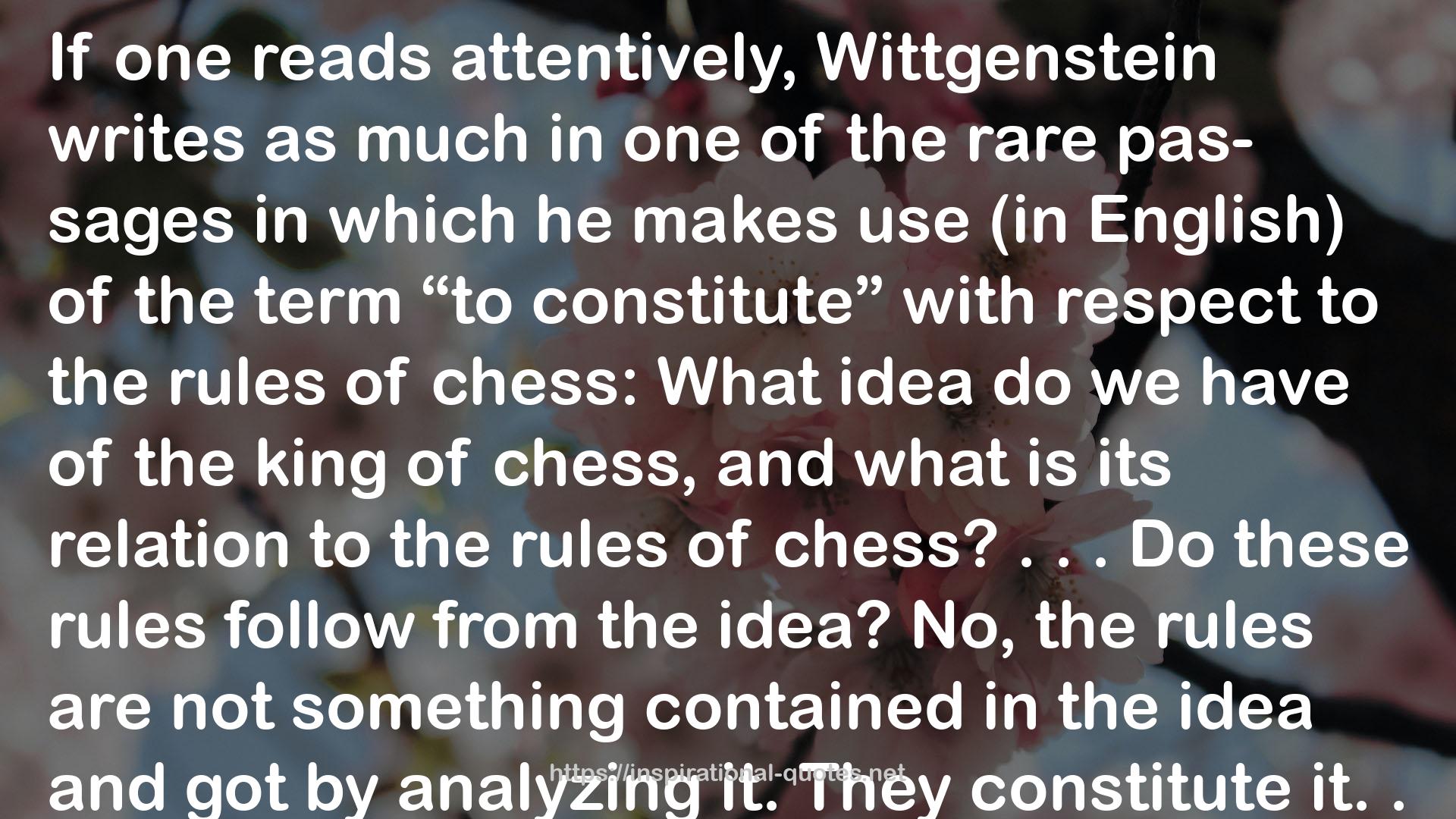" If one reads attentively, Wittgenstein writes as much in one of the rare pas- sages in which he makes use (in English) of the term “to constitute” with respect to the rules of chess:
What idea do we have of the king of chess, and what is its relation to the rules of chess? . . . Do these rules follow from the idea? No, the rules are not something contained in the idea and got by analyzing it. They constitute it. . . . The rules constitute the “freedom” of the pieces. (Wittgenstein 5, p. 86)
Rules are not separable into something like an idea or a concept of the king (the king is the piece that is moved according to this or that rule): they are immanent to the movements of the king; they express the autoconstitution process of their game. In the autoconstitution of a form of life what is in question is its freedom. "
― Giorgio Agamben , The Omnibus Homo Sacer
